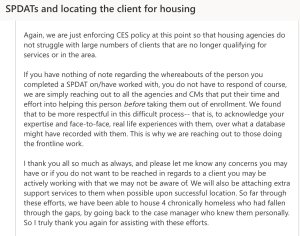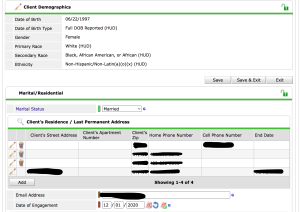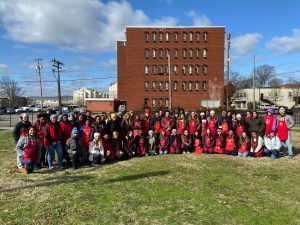Social workers understand that every person regardless of position in society has fundamental human rights such as freedom, safety, privacy, an adequate standard of living, health care, and education. Social workers understand the global interconnections of oppression and human rights violations and are knowledgeable about theories of human need and social justice and strategies to promote social and economic justice and human rights. Social workers understand strategies designed to eliminate oppressive structural barriers to ensure that social goods, rights, and responsibilities are distributed equitably and that civil, political, environmental, economic, social, and cultural human rights are protected.
Social workers:
- Apply their understanding of social, economic, and environmental justice to advocate for human rights at the individual and system levels.
- Engage in practices that advance social, economic, and environmental justice.
- Facilitate team and coalition-building and other collaborative strategies for promoting system change designed to reduce social and economic inequities.
This competency highlights how every individual has equal rights and deserves the same opportunity as others. Social workers must understand that social injustice exists and we should advocate for our clients on a micro, mezzo, and macro level. This competency challenges me because sometimes I do feel unheard. There are many things that are factored in when an individual advocates for a person or group. Leading a group or addressing an issue opens the door for criticism and debate. When fighting for justice I must be competent and prepared to tackle the issue from various standpoints like the social, economical, and environmental levels. Throughout my Senior year in the BSW program I have noted that power is in the numbers. If I am able to unite people with similar beliefs and struggles I can help create systematic change. I will take this concept along with me as I continue to engage with clients who are experiencing social injustice.
Academic Evidence:
1.In the link below, I have attached an assignment that I completed in my Junior year in a course called Human Behavior & Social Environment II taught by Professor Rusu. In this assignment I break down an ethical dilemma on a situation where a Christian restaurant owner does not want to allow people from the LGBTQ+ community to enter. I try to resonate with both sides of the situation to fully grasp everyone’s feelings involved. I acknowledge that the restaurant owner has the right to have his own beliefs on sexuality but by publicly stating that the restaurant will not serve a specific population is discrimination.
Field Evidence:
2.Back in October 2021, an e-mail was sent out by the Coordinated Entry Program Manager from the Chattanooga Regional Homeless Coalition to ensure policies are enforced and client needs are being met. According to HUD (Department of Housing and Urban Development), chronically homeless is defined as “either (1) an unaccompanied homeless individual with a disabling condition who has been continuously homeless for a year or more, OR (2) an unaccompanied individual with a disabling condition who has had at least four episodes of homelessness in the past three years”. The chronically homeless are people who are typically prioritized throughout the rehousing process due to the high risk they have in society. The Coordinated Entry Program Manager, wanted to ensure that all professionals who are engaging with said clients should be clear on what stage the client is at to avoid them falling through the gaps. I chose this as an evidence because it shows how we must facilitate as a team to ensure justice for all of our clients. I took this into action by entering updated and relevant information on the call log and into their client profiles. Due to confidentiality I have blacked out some information but I have linked an example of what I tend to update when interacting with a client below.


Community Service:
3.In my Sophomore year I participated with the Social Work Club to work with the Salvation Army in creating a Street Store in downtown, Chattanooga, TN. The Street Store was to simulate a retail store and give others the opportunity to come “shop” our selection. There was a vast selection of donated garments like sweaters, pants, and accessories for men, women, and children. It was huge success and we were able to connect with many individuals in the community. In this event we were all able to work as a team to make others feel included by letting them choose what they wanted. This helped create a more normal experience for those who are facing economic inequalities. I was glad I was able to be a part of a beautiful moment.

